
FIND YOUR OWN VOICE
Probably every wanna-be Creative has been told (at some point or other) that in order to reach their full potential as a writer, visual artist, musician, performer or whatever, it is imperative to “find your own voice.”
Now, in the Age of Social Media and Self-Branding — when the “Creative Mindset” is supposed to be The Way to $ucce$$ and Happiness — we are told that we must go looking for our individual, unique voices. Our success depends on it.
I confess, I almost lost it when a pragmatic, more literal-minded friend snarked, “I KNOW where my voice is. It’s right here in my mouth!” Gales of laughter came bubbling up.
Explaining this “voice” thing gets confusing because even people who are engaged in developing themselves in a craft or an art or some other skill that doesn’t use words and doesn’t engage the mouth’s ability to make sounds can get all tangled up in trying to figure out how to find their own “voice.”
Now that the business world has turned on to getting creative, it seems that everyone wrestles with the idea of developing a voice.
There are Titans out there – the guys who built empires using their strengths and compensating for their weaknesses by surrounding themselves with people who have other, complementary strengths. Lots of people admire them and want to be them.
There are Mega-Stars and Rainmakers and Heroes and Idols and Headliners and Leaders and Big Cheeses and High Muckamucks and Household Names and Treasures and Wonders and Leading Lights and so on and so forth, ad nauseum.
Every one of them will probably tell you that they reached the stratosphere of massive accomplishments because they were successful in finding their own unique “voice.”
WHAT IS YOUR VOICE?
This concept of the elusive “voice” all wanna-be Successes are supposed to be nurturing is the crux of a story I encountered in a blog published by a flamenco dance teacher, Rina Orellana.
She relates how students come to her asking, “How do I find my voice? How do I allow myself to become the dancer I want to be?”
When dancers ask her this, she says, to her it’s an indication that the dancer is “not quite comfortable in their skin. They’re thinking too much and not feeling or allowing themselves to be in the movement.”
Her advice to these students is particularly insightful, I think.
Orellana tells them that they “need to allow themselves to be the bad-asses that they are” and she reminds them to “look at themselves in the mirror not to correct any physical part of the dance but to CONNECT with themselves as the person dancing.”
She assures them that looking at themselves in the mirror with acceptance will ultimately lead to their being confident in their movement and in their skin.
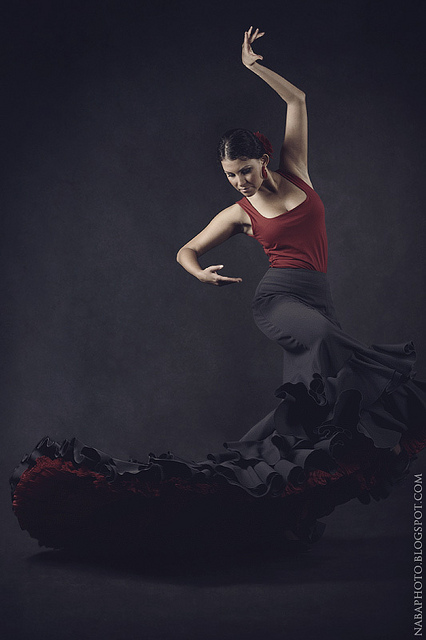
Your “voice” is how you’re recognized by others. It’s the “tone” and the themes of your body of work (whatever it is).
Every time you do anything that other people notice, whether you’re an artist, a businessperson, an intellectual, a scientist or a geek, you are also putting your values and the unique perspectives and skills you bring to your work on display.
What is on display is the meaning and the mana that you have developed so far in your life. Your work shows how you are standing in the world.
Like every other human thing, your “voice” changes as you grow and evolve. It develops nuances and layers. It deepens. It may develop greater clarity or get muddied up by life-induced confusions.
TWO TEACHERS
As an accomplished dancer and teacher, Ornella says, she cannot help passing along her own ways of moving and styling as well as the basic theories and techniques surrounding the craft.
However, in the middle of all that, her aim as a teacher is to encourage each individual dancer to find and focus on the movements that feel “right” for the dancer and to explore the rhythms that resonate.
Kevin Fitz-Gerald, a professor at the USC Thornton School of Music, in this YouTube Video “ARTS: Finding Your Voice,” which was published by the school in 2007, agrees with Ornella. The video was produced by artistshousemusic.org.
As Fitz-Gerald points out in the video, the things that his students point to as things they don’t like about themselves are very often what sets them apart and makes them unique individuals. It is those things that can help them move beyond being “average” or “mediocre” and generic.
Both of these teachers advise their students to discover and develop their own natural strengths and make allowances for their inherent weaknesses and limitations by working on improving their techniques and by choosing a framework within which they can reach for their best work.
Both of them say that you will only be able to discover and use your own voice to present a message that is unique to you when you are able to explore and accept the whole package that is you.
VOICE, AUDIENCE AND YOU
All performers (and businesspeople are performers too) need an audience. It’s part of the dynamic of this self-expression jones Creatives have. They trip out on the reactions they can engender in their audiences.
Every Creative understands that their audience will have an effect on how the artist does what he or she does. Often the audience will determine whether the artist can continue to do it.
As a performer you want your audience to actually see who you are. You want them to pay attention to what you have to say. The audience doesn’t have to like what you say. They don’t even have to like you.
Getting these others to pay attention to what you need to say can be the most important, life-affirming thing a human can do.
As a young girl who was a victim of sexual abuse by a trusted adult, acclaimed poet Maya Angelou had to choose between going silent and remaining trapped in an untenable situation or finding and using her own voice to get the help she needed to escape and to transcend this soul-shattering thing.
The girl chose to speak, and she kept on speaking and affirming life throughout her long and productive time on this earth.
In this YouTube Video, “Finding My Voice,” published in 2010 by visionaryproject, she tells how she brings herself out of her inherent tendency to go silent and closing herself down by deliberately making herself speak and speak and speak.
As Angelou points out in the video, mutism and freezing when overwhelmed by the circumstances in your life can be a very dangerous thing. It can become too comfortable.
You become invisible.
Angelou was acclaimed as a poet, story-teller, and writer. At one point she became an actress, playwright, producer, and director. She was renowned as an educator and as a civil rights activist.
Angelou died in 2014, at the age of 86. Throughout her long life, she was not invisible.
THE SHAPE OF THE SELF YOU SHOW
Your audience – anybody who’s watching what you do – will respond to the You that you present to them in your performance. They can only know what you choose to show.
Maybe you’ve decided to spend your time imitating what those who have become the icons and the “best-of-class” in your field do. Maybe, you think, if you do what they did, then you will glow with their kind of shine.
There’s only one problem with doing this: The You that you are showing to your audience will never be more than just a copy of somebody else.
For example, there are excellent Elvis imitators out there. They serve a useful function: They help keep the legend of that good ole boy alive. But, really…off the top of your head, can you actually recall the names of these performers?
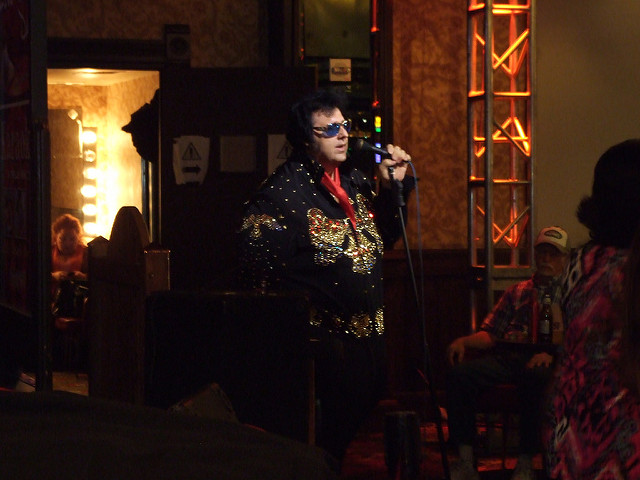
I suppose, “finding your voice” is all about choosing the You that you want the World to know. And, probably, you do hope that the You that you choose to show will not be ignored, dismissed or mocked.
Let’s be frank here. You really do want at least some of the other people in this world to like that self you’re showing them because, basically, you do need to win enough support for what you are trying to do so you can keep on doing it.
Part of that is a matter of survival. You have to eat. You need a place to lay your head that’s more comfortable than a piece of cardboard under some highway underpass. You need to take care of the people you love too.
And you have to achieve all that among all these other people (seven billion and counting) who are wanting to do the same thing as well.
However, it seems to me that if you’re any kind of a Maker, what you really want out of all this dancing around is to get to a place where you will have the freedom to get on with doing what you like to do best.
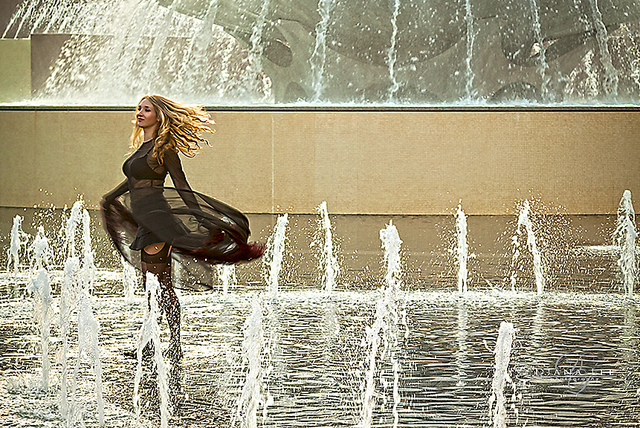
HOW DO YOU GET ON THE BUS?
The biggest problem with all this head-scratching and mooning around trying to hear your own voice is, as jazz great Miles Davis once pointed out, often a matter of spending enough time just doing what you want to do. Miles said, “Sometimes you have to play for a long time to be able to play like yourself.”
For one thing, there are a lot of different “selves” inside every one of us.
All the wise guys and smarty-pants agree. All of us humans are pretty much assemblages, made up of the bits and pieces we’ve picked up over time from the other people around us as we continue to wander through the world.
These assorted bits get glued onto the basic package. Sometimes all those life-bits turn us into lumpy messes.
To find the self that best encourages other people to respond positively to your spending your days in ways that resonate with that self you actually started out being can be a bitch of a project.
Every hour of every day and night you’re dealing with the pressures and demands of all of your dailynesses. Work, and the needs of your family, your friends, your co-workers, your neighbors, and your stuff eat up your time.
Trying to deal with satisfying other people’s priorities, goals and expectations and maintain the life you’ve become accustomed to is often simply overwhelming.
Now, on top of that, we’re supposed to dig out our true selves and find our own voice as well? Ri-i-i-ght….
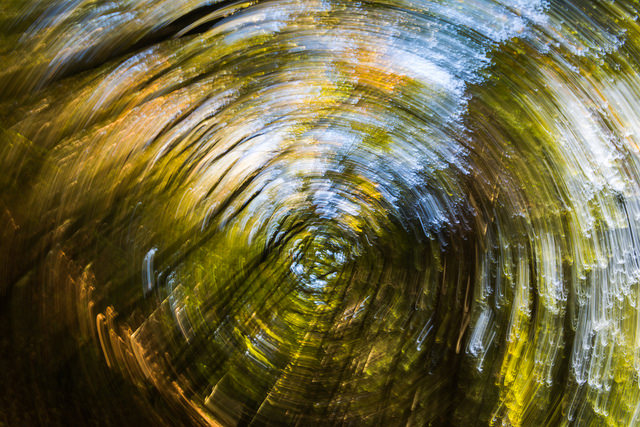
His book, LOUDER THAN WORDS: Harness the Power of Your Authentic Voice, is a good one to explore if you choose to accept this latest mission: finding out who you are and what you want to say and do and then figuring out how to get other people to buy into that.
Besides explaining why finding your voice is important if you are looking for the meaning and mana in your ordinary life and in your work, Henry puts forward questions to ask and ways to find your own answers to them.
Here’s a list that he put together:
- What angers you? What triggers an urge in you to rectify a great wrong?
- What makes you cry?
- What have you mastered? What do you do well?
- What gives you hope? What do you look forward to?
- As a child, what did you want to be when you grew up?
- If you had all the time and money in the world, what would you do?
- What would blow your mind?
- What platform do you own?
- What change would you like to see in the world?
- If you had one day left, how would you spend it?
YET ANOTHER 30-DAY CHALLENGE SERIES
It occurred to me that Henry’s question list would make good 30-day challenge material. Here’s the how-to:
- Grab an ordinary small-kid kind of composition notebook and a pen and label it “The Voice Project.” (No need to get fancy with this.)
- Now, choose one of those Henry questions or make one up that’s your own, then make a commitment that for just ten minutes every day for the next 30 days, you will think on that one question and write down your answer to it in that notebook you’ve labeled. (If the time you take to answer the question stretches past the five minutes, that’s fine too.)
- Do this notebook thing every day for 30 days. Be honest with yourself. Nobody else is going to see this thing. Just you.
- If it starts to get boring, you might want to use colors and drawings and other stuff to illustrate the thing. Cut out magazine pictures and stick them in there. Write a poem. Whatever. Have fun with it, but answer the question.
- By the end of that time, you’ll at least get some idea about the kinds of thoughts that arise when you ask yourself this one question.
- After you finish the first 30-day challenge with the question of your choice, do it again for the next question, then the next, then the next.
Ten minutes a day for thirty days equals 300 minutes – a minimum of 5 hours total in a 720-hour time period.
It’s less than the time spent attending yet another workshop or working your way through one more online course.
It’s less time than the time spent participating in networking events listening to everybody else’s pitches and slinging some your own self.
In between the question-answering sessions, you might want to go back and read over and look at the stuff you’ve produced. You might ask yourself whether you really agree with all this blather and B.S. you’re shoveling.
That’s when you really start figuring out what you actually think about the thoughts you think. You find the shape of your own basic self – the one that just sits there waiting for you to notice.
It gets to be quite fascinating after a while.
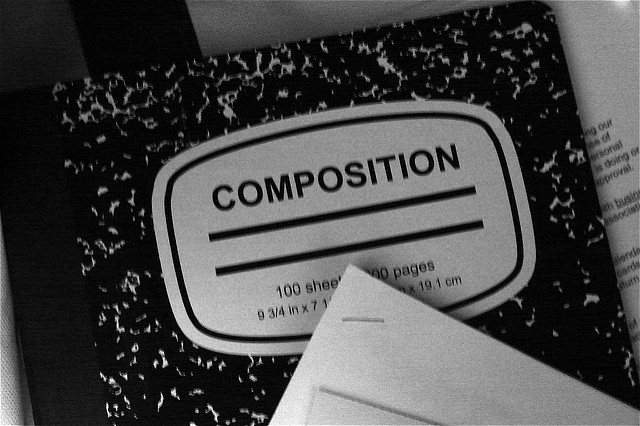
You might start doing things that surprise you: accepting an invitation to a gathering that you might normally not consider, taking on some project or supporting a cause that resonates strongly with you, or trying something you never tried before just to see whether you might like it.
These things may have some pretty amazing results. It can be a very good thing.
Here’s a poem:
THAT IS THE SAD
Melancholy sits, a knot at the small of my back,
My companion as I walk through sunshine and through rain,
As I do my days,
Charging at windmills,
Taking in the wonderments,
Drinking down the joyousness,
Choking on the tears.
Maybe I’m understanding now:
The sadness is only the residue
Left behind as a flood flows
Through my heart cave yet again,
Leaving behind a high-water mark.
You know, of course, that all that shiny stuff
Running through all of our heart-caves are
Tributaries that merge together into a great river
Running through this ancient universe,
Pumped out by the jostling masses of living creatures,
Flowing all together like the notes of one grand song.
The birds singing their morning hosannas as they greet the sun
Go on through their day with the sound of that
Mighty chorus sounding in their ears,
Content that they’ve established their place in the world.
I am thinking we humans are no less connected than they,
But ours is a darker richer song,
Its complexity woven into our days and nights like a subsonic rumble
As we delude ourselves into believing we are immune –
Apart somehow – from the music we are making,
That grandiloquence that touches the edges of our own universe and beyond.
We fool ourselves and think we can sidestep the consequences
Of our myriad tiny choices,
That we can stand apart and inviolate, away from the all of everything.
And so we stand uncertain, unsure that this how, this place is righteously ours…
Unlike the bold birds who understand otherwise.
That’s the deep sadness, I am thinking,
The “suffering” wise guys ponder – this forgetting that is uniquely human –
The disremembering that, one and all, we are
The favored children of this old universe…
Welcome, gifted and alive,
Swimming in the same golden stream.
That willful denial keeps us grabbing at the silly, glittering flotsam,
That awful lostness rasps and scrapes us raw,
Dogging our days and trotting us around all crazy.
That’s the sad, I think.
That’s the suffering.
By Netta Kanoho
Header Photo credit: “Who Is Speaking?” by Daniel Horacio Agostini via Flickr [CC BY-NC-ND 2.0]
……
SOME OTHER POSTS TO EXPLORE:
(Click on each of the post titles below and see where it takes you…)
……
Thanks for your visit. I’d appreciate it if you would drop a note or comment below and tell me your thoughts.
21 thoughts on “FIND YOUR OWN VOICE”
Lovely and intellgent article.
I’ve been a musician and a producer songwriter now since I qualified from Leeds College of music and Amsterdam SAE. I think a lot of people have an idea that they have a creative voice but are way too nervous and lacking in confidence to do anything about it.
I dread to think of the superstar level artists and writers we’ve missed though the years because of this very thing.
Do you feel that masterminds in creativity have continually slipped through the net due to not being able to find their own creative voice?
Hey Chris:
Thanks for your visit and your question.
Yes, I really do think that very often Creatives get all tangled up in World-things and they doubt the value of their own thoughts and feelings so they just go silent.
I get sad when I think on that. What wonders have we been denied because these people chose not to say and do their own? (Sigh!)
Please do come again.
Netta, If only I could have read this wonderful article forty years ago. I loved singing as a child, but I was the youngest of six siblings, and everyone would tell me to stop singing and stop trying. They loved me, but they crushed me. Now, at fifty-four years old, I sing loudly in church, where nobody cares or judges. Sad but true.
As I listened to the videos on this page, I couldn’t help but wonder what I could have been. After reading through Todd Henrys’ list, I can’t help but think about my grandchildren. What advice would you have for a child who hates to sing, but has a wonderful voice? I try to get my six year old granddaughter her to embrace her gift, but she just wants to play.
Thank you so much for your website. In this world of selfishness and oppression, it’s so nice to be uplifted.
Clay
Hey Clay:
Thank you for your visit and for sharing your thoughts.
I think it’s wonderful that you are finally able to sing your heart out in church. That’s lovely! If you like, you might find another post of mine, Compline: Wings of a Prayer, a good read.
My own thought about your granddaughter is that every child comes into the world with an incredible bundle of gifts. Perhaps she is a bit too young yet to notice that she does have a grand voice. It may be that she’s exploring other gifts. A good way to encourage her would be to invite her to sing along with you and make it fun for her to do it.
Maybe you both will be able to build up awesome memories that lead her to embrace the gift she already has. Then you can introduce the hard parts of the craft. (Gotta be sneaky, Grandpa! Hee!)
Please do come again….
Very interesting article here, Netta. I am a performing musician . I was sent to music lessons at age nine. I enjoyed it and progressed with classic forms that I was taught.
For years I played what I knew and how I was taught until I met with a friend who learned like I did, but branched out into playing jazz. I joined her and found such a different world.
Rather than obeying the notes that were printed on a music sheet, I began to learn how to play from what I felt, adding extra chords here and there and dropping in progressions along the way.
I could say I found my ‘musical voice’ and I am now composing and recording in some satisfying projects.
Thank you for this article. I know exactly what you mean.
JJ, thanks for the visit and for sharing your story. It adds immensely to the post, I think.
There is always going to be a difference, I am thinking, between technical skill and expertise and the heartfulness that comes when you’re playing with your soul-thoughts coming through.
I see the same thing in artists and dancers as well. The ones who are sharing their inner worlds do work that soars past work by others who might be “better” or more “skillful” at playing an instrument or using a brush or working with their bodies.
I’m glad you enjoyed the post.
Please do come again.
Wow! Amazing! I can feel deep emotions with your poem!
And I do agree the “suffering feeling” as a wise person. Because, in my personal opinion, they must be able to find a middle ground in every situation they face.
And I often wonder “Are white lies allowed”? If indeed it can make the situation and circumstances better, what do you think?
Thanks for your visit and for sharing your thoughts, ronnytan.
I’m not sure what “white” lies are, actually. There are times when we all will mouth some platitude or some vague sort-of agreement noise rather than confront someone who is already hurting badly.
There’s no merit, after all, in pounding somebody over the head with some dumb dogma or other thought-construct which doesn’t help anything and just makes them feel worse.
I just tend to hug people when they’re hurting. That helps a bunch, I notice.
I’m glad you enjoyed the poem.
Please do come again.
Hello Netta, this is a very lovely article that you have shared and I want to say thank you. It’s actually not an easy task to find one’s own voice especially when we think that our voice is in our mouth 😄.
For me, finding my voice would be my own SPECIAL WAY of doing things, my uniqueness etc.
As a musician, I feel the best way to learn and become good at singing is to imitate musicians we love. This is what I have been doing for a very long time now and today when I sing, people that are familiar with my singing style easily figure out that I am the one singing.
However, I can still see that most of the songs I compose sound like my favourite musician. I mean, you’d hear an element of my favourite musician in the songs. No wonder it is very important not to imitate. Well, I am doing well
Merry Christmas, I celebrate you!
Hey MrB…thanks for the visit and for sharing your story and thoughts.
All of us who are any kind of creative starts out copying the ones we most admire. How not? We want to be as excellent as we think they are and copying them helps us suss out why they do what they do and we learn how to make their riffs and moves our own.
Once we’ve got that down, we can start adding our own stuff to our body of skills and knowledge (most of which have been cadged from the great masters who’ve come before us). That’s when it starts getting to be fun, I think.
And that’s why Miles Davis said it takes a musician a long time to sound like himself.
We all build on what the great ones who came before us did. Nothing wrong with that…as long as you remember to keep trying to go past that and get to your own.
Glad you’re makin’ the run, man. Keep on!
Please do come again.
Oh! Really nice.
I will discover my true self with time. That’s correct. I have seen this happen to many musicians.
Thanks.
This is an excellent article, great advice!
As a beginning writer, I have fought the urge to try and be like the other writers in my genre, even though I know in the short term it would help me be more successful.
I want my own voice to be the one that people hear, and even if not a lot start to read now, that eventually I will get a following that grows as I grow as a writer!
Thank you so much for the encouraging words, I cannot wait to start on my own 30-day challenge!
Travis, thanks for the visit and for sharing your thoughts.
I do agree with you. If you are going to put in the effort to do this really hard thing called “writing” (that probably any third-grader can sorta do), why use anybody else’s voice? My thought, anyway….
I’m glad you found the post helpful.
Please do come again.
Wow, impressive post. This post stirred up lots of emotion.
I feel that for many of us our true inner self was silenced. How many more happy and productive adults would we have in this world if our voices were catered to and given the space that they needed to grow?
I also loved the 30 day challenge of writing in the notebook and I will for sure be participating in that to work on my personal growth.
Nicole, thanks for your visit and for sharing your thoughts.
I’ve met many people who have found their own voices after years of being blocked or stifled. They fly so much higher and shine very much brighter than the ones who have never been challenged.
Perhaps we need the obstacles and potholes in our lives to make sure we can shout out the messages we hold more clearly. Perhaps we need them to become the best of what we are already.
Please do come again.
Great article you got here
When I was growing up, all I could think about every day was music. I wanted a golden voice. I did all I could — went for training and tried my best, but there was no positive change to my cracked voice. I got no motivation whatsoever from anybody so I got discouraged along the line and I felt that music wasn’t for me.
If I had seen an article such as this then, I probably would have been encouraged.
I don’t really know if I can still give a try again.
Thanks for your visit, petergeorge5666, and for sharing your story.
Auwe! I feel so sad for you. Perhaps you might want to try setting aside the dream of having a “golden” voice and see what you can do with the “cracked” voice that you say you have.
If music makes your heart soar, then I encourage you to reach for it again. Hey, look what Mick Jagger did with his own ornery growly voice! If he had tried to change his way of singing for some other more “ideal” way, he might not have been able to touch so many of us and help us fly.
I don’t know. Could be, might be…you don’t know unless you try.
Please do come again.
As someone who loves to write and takes passion in putting thoughts out through words I really enjoyed the content.
Finding a voice is so so important to the empowerment of the individual. Everyone has something to offer with their voice and your message is very powerful and important.
I loved how you combined other people’s expectations of you for them and then they expect you to be fine yourself. You can only give from your overflow.
Thanks for your visit and for sharing your thoughts, Nicholas. I do agree with you when you say, “You can only give from your overflow.”
Please do come again.
I had to chuckle when you wrote your friend said her voice was in her mouth. She obviously had no idea what it means to find your voice, so hopefully she will find hers. it is so important to find your own voice, to me it is the equivalent o f a calling. Others might put you down and say you are not good enough, but to rise above that challenge, will make you better.
I have made a note of Todd Henry’s list to help me find “mana” in my life. Thanks for sharing a very thought provoking post. And as always, I love your poems.
Hee! I think my friend HAS found her voice. She snarks a lot, but it’s mostly in a good way. (That one’s really hard to do right.)
Please do come again, LineCowley….